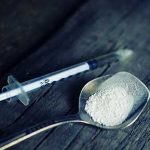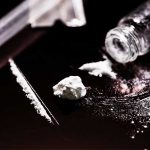- Signs Of A Crack Overdose
- Crack Overdose Symptoms
- Risk Factors For A Crack Overdose
- Treating A Crack Overdose
Crack cocaine is a stimulant drug that, like most illicit substances, can lead to a drug overdose if used in high enough quantities. But while any drug use can lead to an overdose, crack cocaine produces a more intense high, which can increase the likelihood of an overdose.
Crack cocaine also has an increased risk of negative side effects, abuse, and addiction.
Signs Of A Crack-Cocaine Overdose
Crack cocaine is a term used for cocaine that is cooked with baking soda or ammonium salts. It’s similar to powder cocaine but it is much more potent and more likely to lead to an overdose.
Signs of a crack cocaine overdose may include:
- sudden shifts in behavior
- flushed or pale skin
- hoarse voice
- coughing up dark phlegm
- incoherent speech
- shaking
- bloodshot eyes
- dilated pupils
- sweating
- fever
Crack-Cocaine Overdose Symptoms
While the signs and symptoms of a crack-cocaine overdose can go hand in hand, signs are things people can see on the outside. Symptoms can show up on the inside as well as the outside of the body. Some of the symptoms of a crack-cocaine overdose can include:
- weak blood pressure
- depressed respiration
- clammy skin
- nausea/vomiting
- hyperactivity
- confusion
- clumsiness
- irritability/paranoia
- excessive itching
- coma
- stroke
- heart attack
- seizures
- high blood pressure
- high body temperature
- hallucinations
- irregular heart rhythm
- rapid heart rate
- chest pain
Risk Factors For A Crack-Cocaine Overdose
While any crack-cocaine use can increase the risk of an overdose, there are additional factors that can contribute to its overall risk.
Combining Crack With Other Drugs
Combining crack and other drugs can increase the risk of an overdose. Mixing cocaine with depressants like alcohol or opioids is common because people think it can dampen the effects of cocaine.
Regular Crack Use
People who regularly use crack and keep increasing their dosage to maintain the desired effects also have an increased risk of overdosing. That being said, even someone using crack for the first time can overdose.
Crack Relapse
If you haven’t used crack in a while and then go back to your former dosage, an overdose is very likely. This may be one of the most common reasons for drug overdose in general.
Poor Nutrition
A weak immune system, heart problems, or any other health problems can also increase the risk of an overdose.
Treating A Crack-Cocaine Overdose
Treatment for an overdose first starts with calling emergency services and getting medical attention at a hospital. After the overdose is treated, addiction treatment may be necessary.
Calling 911
When someone overdoses on cocaine, the first thing you need to do is call 911. An overdose can be fatal if left untreated. When you call, make sure first responders know what the drug is so they can best treat it before they take the person to the hospital.
Emergency Department
The first responders will likely take the person overdosing to the ER or emergency department, but if 911 isn’t an option for you, you can also take the person to the ER yourself.
Once you get to the hospital, let the medical professionals know what the person overdosed on so they know how best to treat them.
Addiction Treatment
Once the overdose has been treated and the person has survived, the next step is, ideally, cocaine addiction treatment. The chances of another overdose decrease if someone is no longer using the drug.
The hospital can help you set up substance use treatment or at least give you information on local detox, inpatient, and outpatient treatment options. If they don’t, you can also find crack addiction treatment information online or go to your regular healthcare provider.
Accepting addiction treatment may only be the first step in your recovery journey, but it’s an important one.
If you or a loved one are struggling with drug abuse or another form of substance abuse, treatment programs are available. To learn about Northeast Addictions Treatment Center, please call our helpline today.
Sources
Written by
Northeast Addition Editorial Team
©2024 Northeast Addition Center | All Rights Reserved
This page does not provide medical advice.






